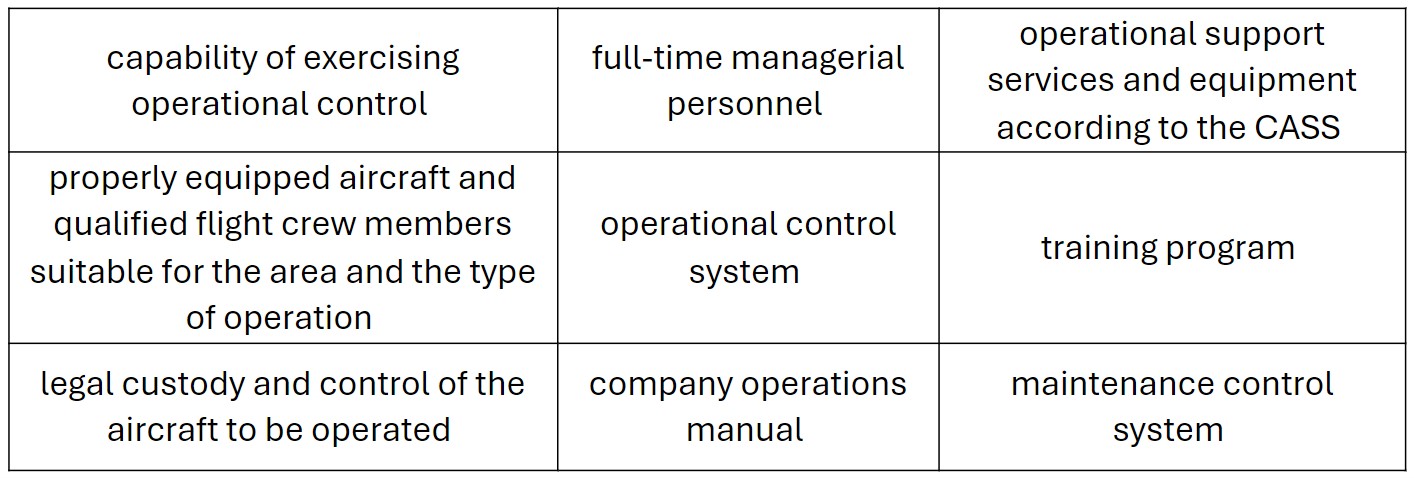There are many industries and sectors that concern public interest. They’re met with heavy regulations and requirements that need to be complied with. In Canada, one of these industries is air transportation and civil aviation, which ensures the safety of both passengers and crew. Part of these laws is the Aeronautics Act, which gives rise to the Canadian Aviation Regulations 703.
What are the Canadian Aviation Regulations?
The Canadian Aviation Regulations (or CARs) are some of the many regulations under the federal Aeronautics Act. The CARs regulate some of the aspects of civil aviation, alongside the Aeronautics Act. When the CARs were enacted in 1996, it repealed the former Air Regulations and Air Navigation Orders. The CARs are the current set of regulations on aviation and activities related to aeronautics.
#FunFact: Our civil aviation inspectors conduct 10,000 inspections and certifications every month! For more info: https://t.co/Bx8KTpq9dF pic.twitter.com/k0lCsUAKDB
— Transport Canada (@Transport_gc) July 3, 2018
To know more about civil aviation inspections or the Canadian Aviation Regulations 703, reach out to any of the Lexpert-ranked aviation lawyers in your area. If you’re based in Calgary or Edmonton, contact one of the best aviation lawyers in Alberta.
Aeronautics Act: an overview
To understand the CARs, specifically the Canadian Aviation Regulations 703, we can first look at its enabling law: the Aeronautics Act. The Act is the umbrella law when it comes to civil aviation in Canada, as opposed to general and military aviation. It’s divided into these different parts:
- Aeronautics: states who the Act applies to, the responsibilities of the Minister of Transport, and the rules on aviation security
- Military Investigations Involving Civilians: deals with the procedure of an investigation on a military-civilian occurrence
- Staff: allows the employment of officers, clerks, and employees for the administration of the Act
- Prosecution: provides for the limitation period for any legal proceedings under the Act, plus the rules on proving documents and certifications
The CARs and its components
The Canadian Aviation Regulations are divided into the following parts, covering the different aspects of civil aviation:
|
Part 1 |
General provisions |
|
Part 2 |
Aircraft identification and registration and operation of a leased aircraft by a non-registered owner |
|
Part 3 |
Aerodomes, airports and heliports |
|
Part 4 |
Personnel licensing and training |
|
Part 5 |
Airworthiness |
|
Part 6 |
General operating and flight rules |
|
Part 7 |
Commercial air services |
|
Part 8 |
Air navigation services |
|
Part 9 |
Remotely piloted aircraft systems |
|
Part 10 |
Greenhouse gas emissions from international aviation - CORSIA |
What are the Canadian Aviation Regulations 703?
The Canadian Aviation Regulations 703 (CARs 703) is under CAR's Part VII of Commercial Air Services. It is a subpart that discusses Air Taxi Operations, hence the term “703 carriers,” referring to air taxi operators.
As to who are covered by Canadian Aviation Regulations 703, it applies to all Canadian air operators who are engaged in:
- air transport services
- aerial work involving sightseeing operations
All aircraft that are authorized by the Minister of Transport to be operated are covered by CARs 703, in addition to the following aircraft:
- single-engine aircraft
- multi-engine aircraft which has an MCTOW of 8,618 kg (or 19,000 pounds) or less and a seating configuration, excluding pilot seats, of nine or fewer
- multi-engine helicopters certified for operation by one pilot and operated under visual flight rules (VFR)
Turbo-jet-powered airplanes are not covered when the CARs 703 refer to multi-engine aircraft.
Certification under CARs 703
Under the Canadian Aviation Regulations 703, all air operators in Canada can only operate an aircraft if they comply with their Air Operator Certificate. This certificate will explain the necessary conditions and operations specifications to be complied with and will be issued by the Minister of Transport.
However, before an applicant is issued this Air Operator Certificate, they must first show that they can do all these tasks:
- maintain an adequate organizational structure
- maintain an operational control system
- meet training program requirements
- comply with maintenance requirements
- meet the Commercial Air Service Standards (CASS) for the operation
- conduct the operation safely
When the CARs 703 required that an applicant must be capable of exercising operational control, it has several sub-requirements:
 These must either meet the requirements of the CARs, the CASS, or be approved by the Minister of Transport.
These must either meet the requirements of the CARs, the CASS, or be approved by the Minister of Transport.
Regulating flight operations
Canadian Aviation Regulations 703 gave a lot of rules that are related to flight operations. Here are some of these rules on flight operations that apply to aircrafts regulated by the CARs 703:
- operating instructions: all personnel must be instructed about their duties and must follow the procedures of the air operator’s company operations manual
- scheduled air service requirements: rules on air operators regarding their scheduled air service (where and how)
- VFR flight rules: obstacle clearance requirements, minimum flight visibility, and weather conditions during an aircraft’s operation, take-off, and landing
- safety procedures: aircraft operators are required to establish passenger and cabin safety procedures and that passengers are briefed according to the CASS
Additional requirements under the CARs 703
Aside from laying out the certificate and flight operation requirements, the Canadian Aviation Regulations 703 also mandates the following additional requirements:
- aircraft and emergency equipment: list the equipment that an aircraft must be equipped with (e.g., when operating a multi-engine aircraft, operating an aircraft at night or during a thunderstorm, etc.)
- inspection requirement: emergency equipment and other required equipment must be inspected at a given interval
- personnel requirements: provides for the aircraft’s minimum crew, designations among the pilots, and qualifications of the crew
- training: requires air operators to establish their own ground and flight training program, which must also be approved by the Minister of Transport
- manuals: require air operators to maintain a company operations manual, prescribing its contents, including certain standard operating procedures
There are many rules and requirements that Canadian air operators must abide with. These begin from the start of their operations, in the maintenance of their aircraft, and in taking care of their employees and their passengers.
Reach out to the best aviation lawyers in Canada as ranked by Lexpert for more information about the Canadian Aviation Regulations 703.
Related Articles:
Air transport regulation: Canadian aviation laws to know
An overview of Canadian Aviation Regulations 702
Canadian Aviation Regulations 704: a quick guide for air operators
Canadian Aviation Regulations 705: the basics for airline operators
Canadian Aviation Regulations: A Guide on Laws
What is Aviation law in Canada?
The basics of Canada’s civil aviation regulation





